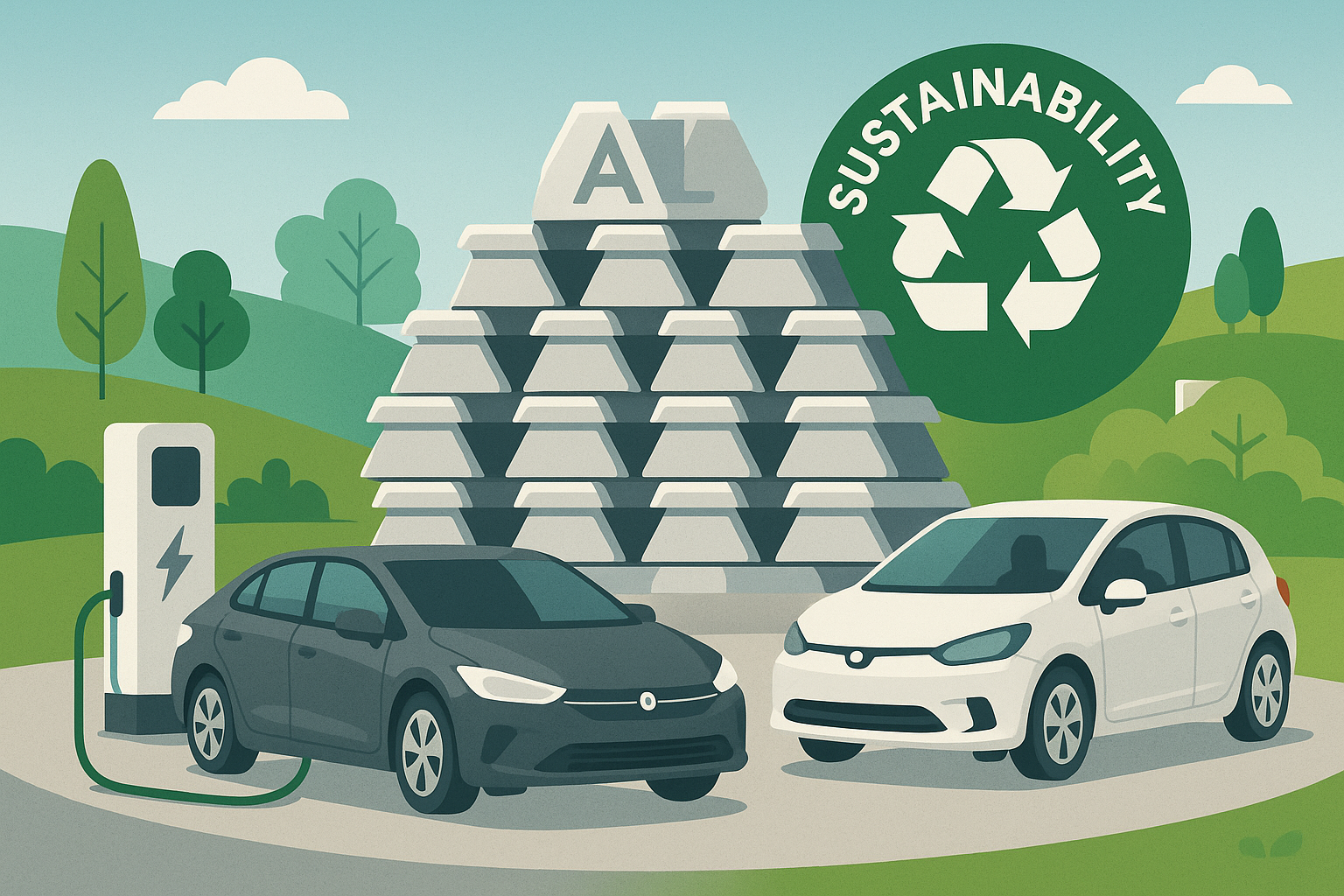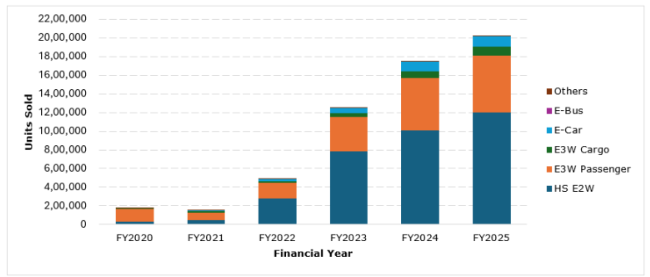

Since the end of 2024, market analysts in India consistently signalled strong growth prospects in the electric vehicle (EV) sector, urging the manufacturing industry to gear up for a major transformation. A central narrative in this shift was the soaring demand for aluminium, a vital material used extensively in engine parts, chassis, body panels, and wheels.

Even ex-Vedanta CEO John Slaven had highlighted last year that the growing impact of electric vehicles, particularly four-wheelers, on the aluminium industry. He had explicitly said, “I think (electric) four-wheelers is where we expect to see the largest growth. There’s more (aluminium) content per vehicle than in a two-wheeler. And then also, as the four-wheelers become electrified, there’s more aluminium per EV than there is per IC (internal combustion) engine.”
After touching the 2 million mark of EV sales, with a total of 2,022,873 units in 2024, India continued to record a growth in EV sales, reaching 1,67,629 units in April 2025, up 44.62 per cent Y-o-Y. While Western markets like the US and Europe are facing headwinds from tariffs and policy uncertainty, India’s EV sector continues on an upward trajectory. In the first quarter of the year, the sales figure stood at 5,14,198 units, compared to 4,99,930 units sold in the same period of 2024.

Graph source: Vahan Dashboard, Telangana State RTO, JMK Research
According to the Ministry of Road Transport and Highways, EV sales in India up until Q1 2025 accounted for 8 per cent of overall automobile sales, which totalled 6,371,476 units. This surge is also stimulating demand in adjacent markets, notably EV batteries. According to IBEF, a trust established by the Department of Commerce, Ministry of Commerce and Industry, Government of India, the Indian EV battery market is projected to surge from USD 16.77 billion in 2023 to a remarkable USD 27.7 billion by 2028.
On the infrastructure front, the pace of EV charging station deployment is intensifying. A recent report from the Confederation of Indian Industry (CII) report emphasised the necessity of establishing at least 1.32 million charging stations in India by 2030 to facilitate the rapid growth of electric vehicles, requiring over 4,00,000 installations annually.
Global appetite for EVs
 Events
Events
 e-Magazines
e-Magazines
 Reports
Reports
Responses








